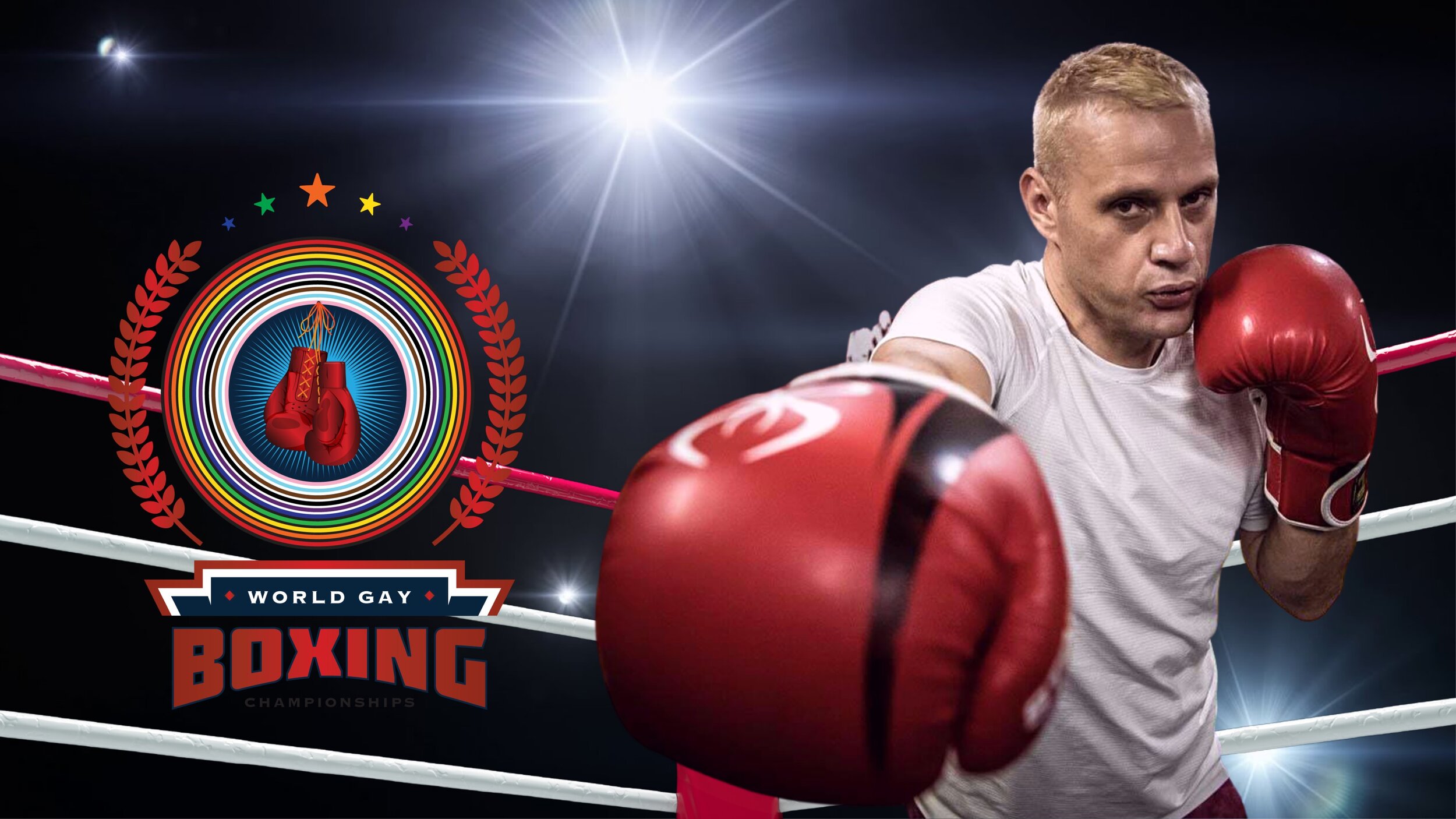Martin Stark takes a jab at homophobia in sport
BY ARNOLD WAYNE JONES
Martin Stark
There was a time not that long ago when Martin Stark wondered whether he would live to see another sunrise.
At the end of 2017, he nearly died from Addison’s disease, a rare but grave autoimmune disorder. He survived it (barely) but found himself suffering from a form of post-traumatic stress. To shake himself from a stupor, he happened upon boxing, and his passion for the sport grew — grew so quickly and strong, in fact, that he founded the World Gay Boxing Championships (WGBC), a nonprofit dedicated to inclusiveness inside the ring.
Even though the main event — the worldwide championships bout — won’t take place for another two years, Stark is planning several gay “fight nights,” and has already generated buzz across the globe with his mission, having been profiled by the BBC, Reuters, Out.com and more.
Stark, who will deliver a keynote address and conduct an online forum for Unleashed LGBTQ, sat down with us via Zoom (he lives in Australia) to discuss boxing, his organization and the need for diversity throughout sports.
How did boxing — or sport in general — enter your life like it did?
I was always a good swimmer — I think of myself as athletic — but was always the last picked at team sports. I think [sports] is where people feel comfortable in expressing who they are. After suffering [PTSD following my near-death experience], I signed up for a series of classes [in various disciplines to get out in the world]. The second class happened to be boxing — something I never thought I’d be good at. But what more than just boosting my confidence, I really discovered a love for the sport.
What is the “outness” of athletes in Australia like — across all sports, not just boxing?
Very similar [to where it stands in the U.S. — i.e., some retired but few active openly LGBTQ players in professional leagues]. Recently, a former rugby union player, now retired from the sport, came out. What’s slightly different here is, there has been great leadership on trans and gender-diversity inclusion.
One thing that really sets WGBC apart, I think, is how inclusiveness at all levels really drives it.
Yes, we call it a straight-friendly organization! We just want to increase inclusion and participation in boxing. It’s important to share your vision and connect with people in the community. And the truth is, it could not have happened without straight allies backing me. A friend who is a lawyer set up the [articles of incorporation]. Another developed the first website for free. I approached Boxing Australia [the governing body for amateur boxing Down Under] and they agreed to endorse and support the championship. They are also providing institutional guidance. There is also a London group [dedicated to inclusive boxing] but nothing on the scale of the championships [we will be presenting 2023]. We already have a high number of trans men who want to box. We have good diversity across the boxing community.
You’re basically following the rules applicable to all amateur boxing, though, aren’t you?
Yes, we have weight divisions but also [categorize athletes] by experience and age to make sure it’s safe. You would never have an experienced heavyweight boxing a welterweight [new to boxing]. So there’s physical safety, but also the psychological safety that people feel when they know they are welcomed, accepted.
What do you hope to accomplish?
Sport has been a bastion in homophobia and transphobia for years and it takes an individual to stand up and say. “This is where it ends.” I set up the organization to disrupt homophobia and transphobia in sport so that in 10 years, it no longer exists. We have gone from champions who make transphobic remarks [in the past] to those same champions attacking those who make them now. Hopefully we have reached a point in society where we don’t need to use the word like “ally.”
How will you achieve that?
It’s all about speaking up. Most people object to offensive behavior, but more people need to report it and stand up to it to really force the mainstream [culture] to step in, and not to hear racist or homophobis remarks [and let them slide]. We should call out racism, sexism or behaviors where people are made to feel disrespected.
--
Arnold Wayne Jones
MaRtin stark


